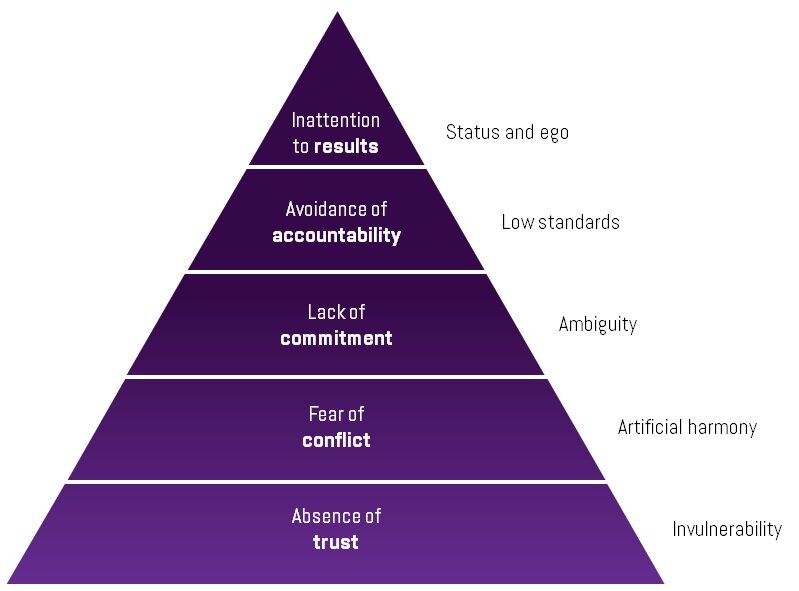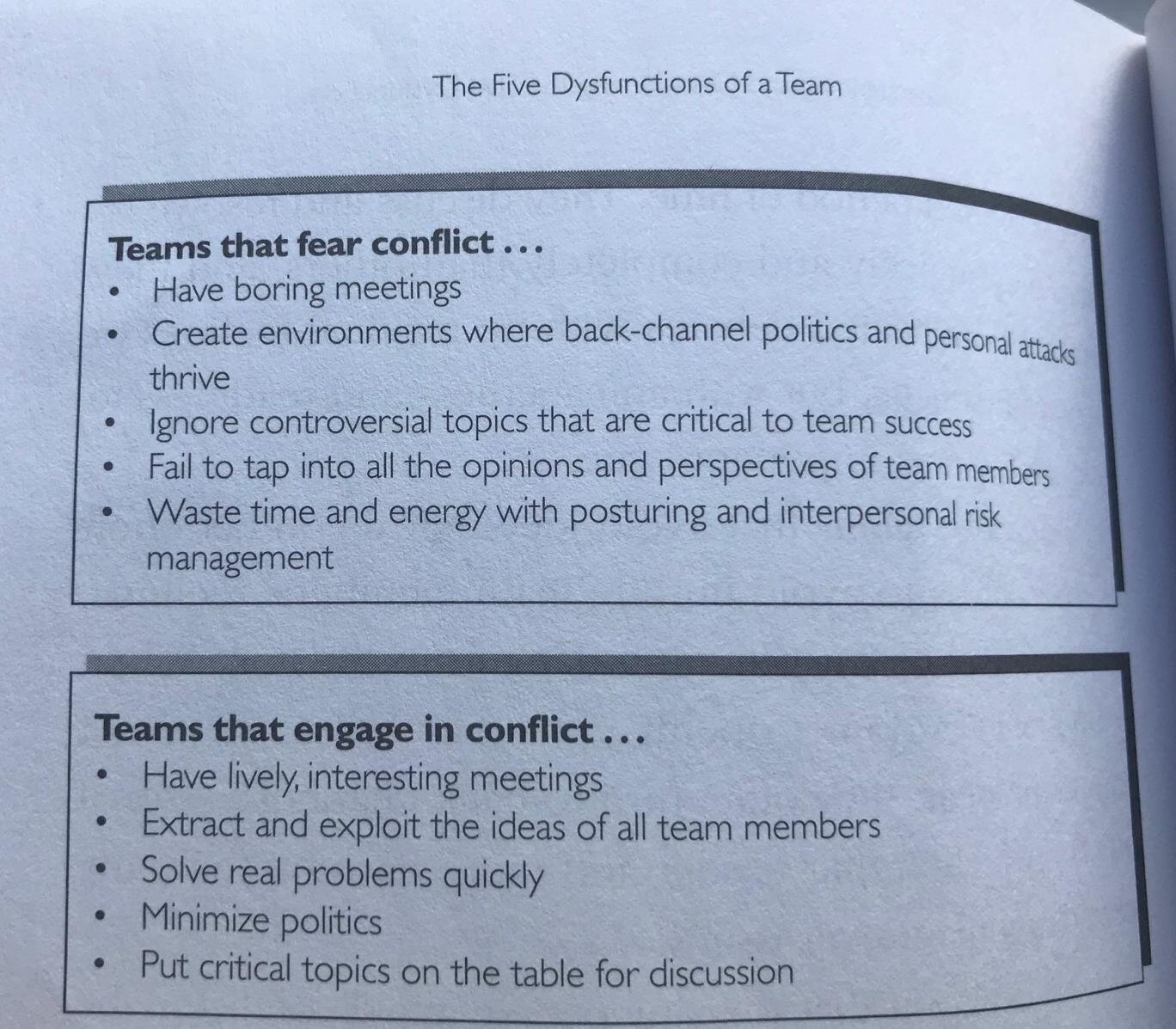Overcoming fear of conflict to build high functioning teams
Fear of conflict is one of Patrick Lencioni’s Five Dysfunctions of a Team. ‘Artificial harmony’ is a sign of this dysfunction.
Healthy, high performing teams are able to regularly engage in constructive conflict - speaking their minds, listening to each other, expressing disagreement and emotion, debating robustly, even when it feels uncomfortable. They can do this because they trust each other not to punish this honesty or to take it personally.
(An excerpt from Patrick Lencioni’s book, The Five Dysfunctions of a Team)
Which list best describes your team?
I have been mediating workplace conflicts for over 15 years. Most of these conflicts have escalated due to conflict avoidance on the part of one or both parties (or their manager!) The results of long term avoidance of conflict include:
A build-up of frustration and resentment because people are not expressing their opinions or feelings
A tendency to gossip and talk behind each others’ backs
Inertia - issues are not addressed and nothing really changes for the better
Poor behaviours and a toxic atmosphere
An increase in staff sickness and turnover and a decrease in staff engagement and productivity
An explosion or implosion - for example, a public row in front of colleagues or a staff member going on long-term sick leave due to stress
In contrast, the fruits of constructive conflict include:
Stronger, deeper relationships
Teams and leaders who are self-aware and continually learning and growing
Creative problem-solving that taps into diverse opinions and ideas
Happy, high performing, resilient teams
A healthy team culture
So how can you overcome fear of conflict? Teams develop a fear of conflict when trust is absent (the first layer of the pyramid pictured above). The antidote to this is vulnerability. Leaders who model and encourage vulnerability build a trusting environment which makes constructive conflict possible. Start by sharing how you feel or what you find challenging. Showing that you are human will help others to do the same.
Fear of conflict is deeply human and is common across sectors. But our worst fears are very rarely realised. And they prevent us from seeing the rich opportunities that lie in constructive conflict - for deeper understanding, for better solutions to problems, for learning more about ourselves, for changes in behaviour, mindset, culture.
How able do you - and your team - feel to engage in conflict at work?
How could you help create the trust needed for constructive conflict to thrive?
What skills do you possess, and what new skills could you develop, to help you engage constructively in conflict?
If your team is fearful of conflict, a facilitated team day can build the trust needed for constructive conflict to be possible, turning a dysfunctional team into a happy, high performing one. Get in touch to find out more - email beccie@couragelab.co


